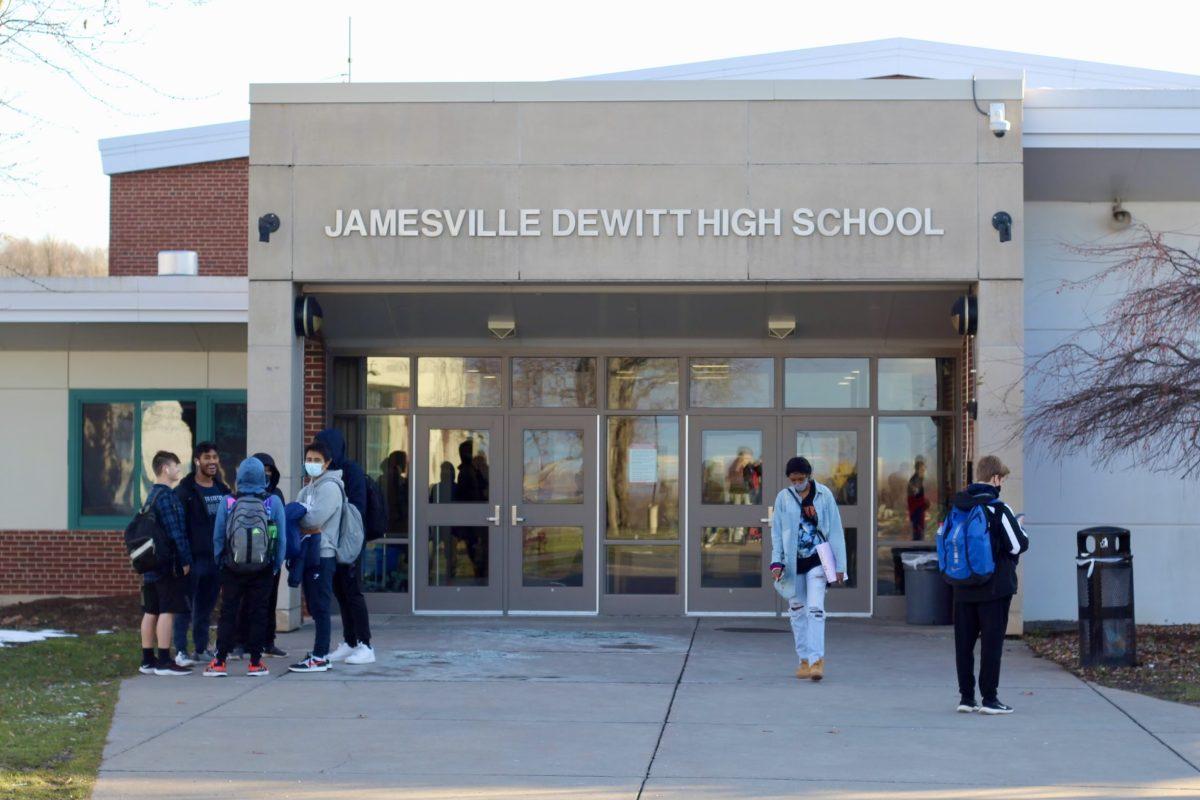Periodically, the school district will send out a ThoughtExchange asking for the input of J-D community members on issues relevant to our school. On a ThoughtExchange, anyone is able to anonymously express their feelings on different topics and rate other people’s thoughts on a scale from one to five stars. The most recent ThoughtExchange focused on district communication, specifically ParentSquare. However, within the first 30 thoughts on the platform, there were posts that featured blatant homophobia and transphobia. How did we get from ParentSquare to downright hate?
I consider myself to be an expert on ThoughtExchanges, having once rated over 400 thoughts (I even wrote a satirical article about them). I have responded to every ThoughtExchange sent out in the past year and I’ve noticed a key theme across all of them: they all devolve into chaos. A ThoughtExchange can start out with perfectly reasonable discussions of homework loads or bus schedules, but they always end in the same place: outraged parents. I have read countless thoughts about the dangers of CRT (Critical Race Theory), DEI (Diversity, Equity, and Inclusion), pronouns, and transgender students, to name a few. Regardless of the topic, these ideas always show up and are often targeted at specific individuals or groups. Some thoughts target specific teachers who ask their students what pronouns they prefer or teach about slavery. No matter how nasty these thoughts get, the worst are directed towards LGBTQ+ identifying students. One thought in the last exchange argued for transgender females to be kept out of girls’ locker rooms at the middle school. Others have requested permission slips for GSA (Gender-Sexuality Alliance) meetings, bans on transgender athletes in sports, and stopping the addition of gender neutral bathrooms in the middle school.
The anonymous nature of ThoughtExchanges practically encourages this harmful behavior, allowing people to say whatever they want with no repercussions whatsoever. No names or emails are collected, it’s completely anonymous. The exchanges ask participants about their relation to the school (parent, student, teacher, etc.), but ask for no other identifiers. Thoughts can’t be traced to specific individuals, which creates an environment free of personal responsibility and consequences. This gives parents who feel silenced the opportunity to pounce, publicizing extremist misinformation directed at marginalized students.
The worst part? The district not only allows, but facilitates this. By creating ThoughtExchanges, the district is giving community members a place to spew hate targeted at students. While this is not the intention of the ThoughtExchanges, they always end up having this effect. I understand that it is important for the district to provide a platform for community members to voice their grievances, but this is very different from creating a place where adults are free to make hurtful comments directed towards students. Why hasn’t the district learned its lesson by now? Time and time again, they spiral out of control and prove to be more harmful. How can they possibly be productive with so much hostility?
By continuing to send out these ThoughtExchanges, what message are we sending to students? It’s okay to express hatred as long as it’s anonymous? It’s okay for parents to target students? It’s okay for a school district to allow this? These messages cannot coexist with J-D’s “We are J-D” mindset and the district’s “commitment” to unity and diversity. “We are J-D” includes every student, regardless of sexuality, gender, race, political orientation, or any other identifying factors. A school should protect and support its students. In our school mission statement and beliefs, the district promises a safe, supportive, and respectful environment. They are failing to provide this when they send out ThoughtExchanges. The district must stop sending out ThoughtExchanges for the health and safety of their students. Until they do, it’s hard to believe them when they say, “We are J-D.”





































